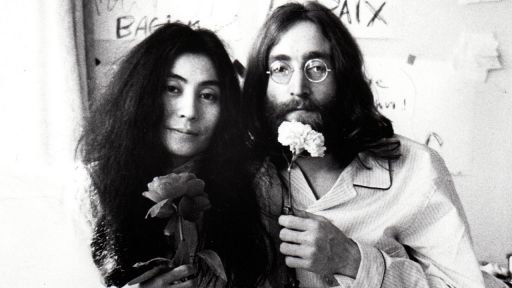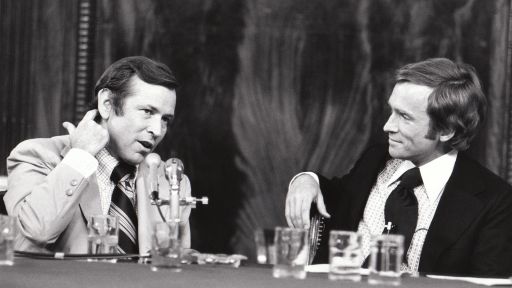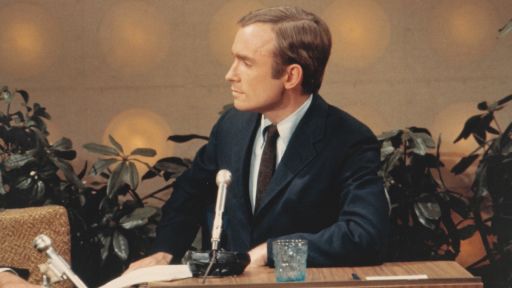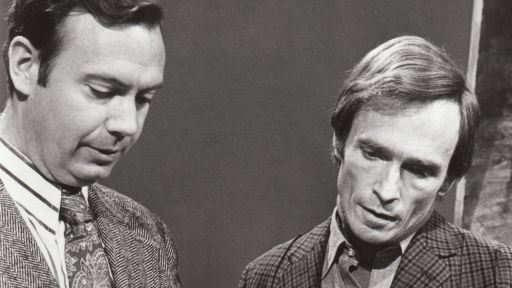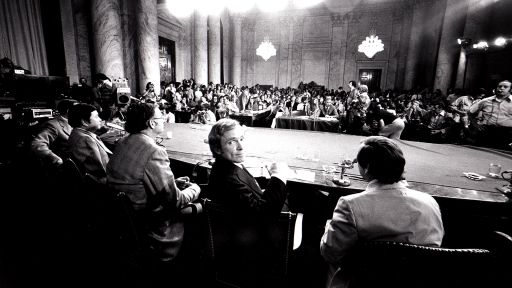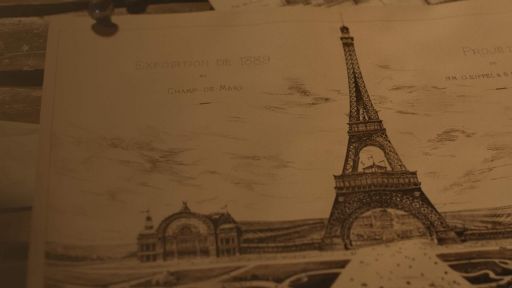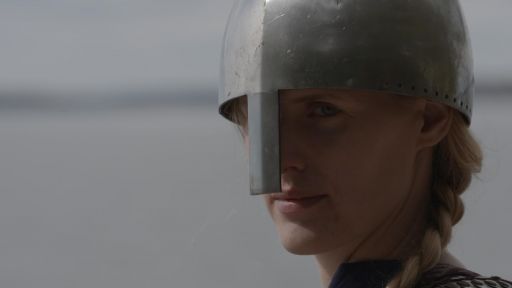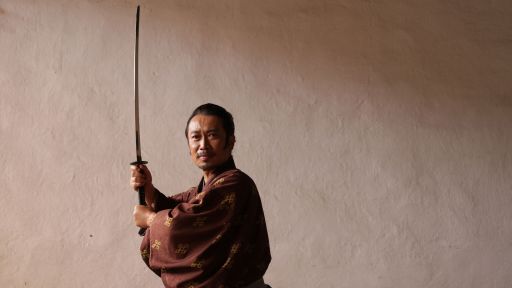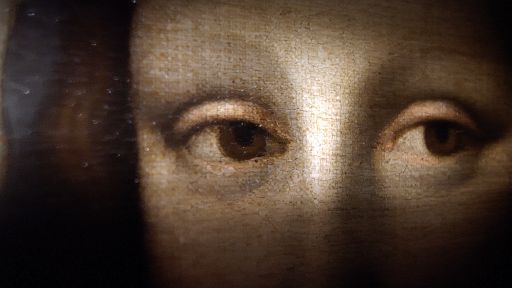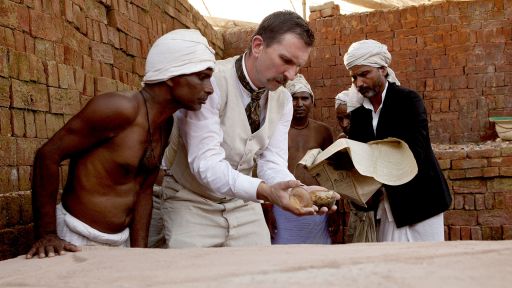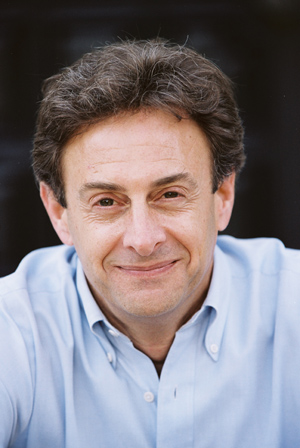
John Scheinfeld
The political and cultural landscape of the 1970s has always fascinated me. Often people tend to view that decade as eminently forgettable, but to me there’s far more to the Seventies than the Brady Bunch and the dawn of disco. Filmmakers crave drama for good storytelling and the 1970s never fails to deliver. There was an oil crisis, global unrest, a cultural divide over the war in Vietnam, and tremendous social upheaval is nearly every facet of American life.
I explored aspects of this tumultuous decade in my film, THE U.S. vs. JOHN LENNON, especially government abuse of power by members of the Nixon Administration, including the Commander-in-Chief. It should come as no surprise, then, that the Watergate scandal hits my sweet spot. The key was to find a fresh, unique and entertaining prism through which to view it.
Q: How hard was it to gain access to/sift through the Cavett archives?
The basic idea for Dick Cavett’s Watergate was brought to me last year by Robert Bader, longtime friend and archivist for Dick Cavett, and VP of Dick’s production company, Daphne Productions (as Dick is fond of saying, Robert knows more about the archive and Dick’s old shows than he does — and it’s true!). In addition to the time period and the Watergate affair being of great interest to me, I am and have always been a Cavett fan. In fact…and I’ve not yet had the courage to share this with him…watching Dick interview newsmakers, musicians and celebrities has had a tremendous impact on my own work. When I conduct interviews for my documentaries, I follow the Cavett model – ask a smart question and get the heck out of the way and let the subject talk. As Dick did so effortlessly, I try to create an environment in which the person I’m interviewing feels comfortable enough to open up and share their thoughts and feelings in depth.
Once I came up with an overall structure for the documentary Robert recommended Watergate-related content from almost 50 shows. My editor and co-producer, Peter Lynch, and I screened DVDs of these programs and cherry-picked the absolute best moments to include in the documentary. And there was, truly, an embarrassment of riches.
Most people don’t know it, but aside from the nightly network news, no one devoted more airtime to Watergate than did Dick. He welcomed guests from all sides of the constitutional confrontation – politicians from the right and left, top political columnists, members of the Nixon administration (including Vice President Gerald Ford and Secretary of State Henry Kissinger), pop culture voices, and key Watergate participants (such as John Dean, John Erlichman, G. Gordon Liddy and Jeb Magruder).
Most of these Cavett interviews have not been seen since their original broadcasts back in the Seventies. Watching them was a terrific experience that provided a unique and intimate view of Watergate. But there was one problem…
At the height of the scandal Dick had on the show the reporters that broke the story – Bob Woodward and Carl Bernstein. Unfortunately, Dick did not have a tape of this show in his archive and it was presumed lost. However, it was unthinkable to make this documentary without that show. So once we went into production, Robert used his detective skills to see if a copy could be found (This is another thing Robert and I share – being relentless in pursuit of rare, lost and/or never-before-seen material). He hit numerous dead ends and then, one afternoon, hit pay dirt.
Buried deep in the vault of ABC, the network for which Cavett did his late-night show from 1969 to 1975, there was a color kinescope of 12-minutes the Woodward-Bernstein-Cavett interview that had been recorded by persons unknown to be used in a 1973 news program. A kinescope, by the way, is a primitive form of recording a television show that had been developed in the 1940s when videotape and videotape recorders had not yet been invented. A 16mm movie camera is trained on a TV screen and captures the show on actual film with the sound patched in from the TV speaker. This method was long out of date by 1973 and yet, for some bizarre reason (for which we are eternally grateful) one was made of this broadcast and we were able to use it in our film.
Q: What surprised you about the topic while doing research?
So much is known about Watergate that I can’t say there were any stunning revelations. We knew all about the rampant criminality in the Nixon administration. We knew all about the “smoking gun” White House tape that proved the President was orchestrating the cover-up right from the beginning. And we knew that over 40 members of the Nixon administration were indicted, convicted and/or served time for their roles in the Watergate affair (not to mention Vice President Spiro Agnew cutting a deal with the Justice Department to resign in disgrace rather than face charges of extortion, bribery and income tax evasion).
Where surprise and fascination were to be found was in how many key participants Cavett had on his show, the tough questions he had the courage to ask, and what he was able to draw out of his guests. To have an opportunity to look at an important chapter in this country’s history through the experiences of an iconic figure who was at the eye of the hurricane was a very special experience.
Another surprise was in discovering just how involved Nixon really was in the Watergate cover-up and in other sinister plots. John Dean was kind enough to send me the galleys of his new book, The Nixon Defense, several months before publication. Dean, who managed the cover-up for a time…and someone we’d expect to know all about Watergate…told me that today he knows more about Watergate than when he was at the epicenter of the scandal.
This is because John and a group of research assistants spent four years listening to and meticulously transcribing every Watergate related conversation on the White House Tapes. The book takes readers day-by-day through those conversations and what they reveal about Nixon and his henchmen is disturbing. The hatred, paranoia, anti-Semitism and, worse, the raw and utter contempt he had for the same American people that supported and voted for him, is astounding.
Q: For younger audiences, speak to the cultural importance/sway that Cavett had. Are there any current talk show hosts that compare with him?
I suspect that it’s difficult for younger viewers to truly understand the TV scene of the 1970s. Unlike today where there are hundreds of “networks,” back then there were only three major networks, ABC, CBS and NBC (PBS was still in its infancy and cable TV as we know it today did not yet exist).
When it came to late-night talk shows, the undisputed king was THE TONIGHT SHOW STARRING JOHNNY CARSON on NBC. Johnny had taken over from Jack Paar in 1962 and consistently attracted audiences two or three times that of whatever the competition threw at him. In June of 1972, when burglars were arrested in the Watergate complex, CBS ran movies in the late-night slot and ABC boasted the talents of Dick Cavett. Ironically, Cavett was a writer for both Paar and Carson before becoming a stand-up comedian and, later, host of a morning talk-show.
About doing such a show Dick once said, “Running a talk show is a wonderful job for people who have never had a nervous breakdown but have always wanted one.”
He soon established himself as a genuine alternative to the TONIGHT show. Where Johnny was most concerned with entertainment, Dick was unafraid to tackle present controversial guests and subjects, often pairing people with opposing viewpoints on the same show.
He became known for his intelligence, his quick wit and, of course, his skill as an interviewer. The result was, as Robert Bader wrote in liner notes for a Cavett DVD set, “was that Cavett often got unique interviews and showed sides of his guests that otherwise did not emerge on television.” Newsweek declared, “Although [Cavett] still trails well behind both Carson and [Merv] Griffin in the ratings, it is Cavett’s shows that are now generating the morning after talk on campuses and commuter trains.”
Dick’s audience kept growing, averaging some 9 million viewers a night and vaulting him into the #2 position behind Johnny Carson. His audience may have been smaller than Johnny’s, but Dick was respected by most people and influential to many others. The Cavett show was where you went if you wanted great conversation…and was where you went when you wanted to reach a younger, hipper audience. The Nixon White House knew this and both feared Dick’s influence on young viewers…and craved access to them. In our documentary we feature several excerpts from the notorious White House tapes in which Nixon and his cronies talk about the talk show host.
As for any comparisons to today’s talk show hosts…I don’t see it. Most go for laughs, others pull at the heart strings, still others lob softball questions to guests who are only there to promote their newest movie/CD/book. Perhaps the only hosts who come close to Cavett’s rare blend of entertainment, humor, and great conversation are Charlie Rose and Jon Stewart.
One last thing…about a week before we finished the documentary a young woman, maybe 27 or 28, joined us in the editing room to watch the rough cut. When it was over I asked her what she thought. She said that all she knew about Watergate was the basic facts learned in school and that the doc opened her eyes in a cool way to what really happened. I then asked what she thought about Dick Cavett. She replied, “I don’t know who the hell he is” and my team — producer Dave Harding and editor/co-producer Peter Lynch — burst out in laughter. She went on to say, “But I love him. He actually asks good questions and he listens. Not like today.” High praise, indeed.
Q: Were there interviews you tried to land that didn’t pan out? What was the most difficult interview to land?
Strangely enough, securing interviews was the easiest part of our intense production schedule. Because the doc is only an hour…and we knew we wanted a lot of Cavett… there was only so much time for other interviews. I knew we needed an historian to help put the Watergate timeline in perspective and we ended up with on of the best – Timothy Naftli, former Director of the Richard Nixon Library and Museum and now on the faculty of New York University. He’s really smart, entertaining and knows how to get complex ideas across in a way that’s easily understandable – a rare gift to have.
And how could I do a documentary that is in any way about Watergate without the men whose dogged and smart work as reporters broke the entire affair wide open? Fortunately, I had worked with Bob Woodward (No Fighting in the War Room: Dr. Strangelove and the Nuclear Threat) and Carl Bernstein (The U.S. vs. John Lennon) before, so they were familiar with me and my work. I sent each an email to which they responded that they’d be willing to participate. Their personalities are very different, but their knowledge and eloquence when it comes to Nixon and Watergate is unsurpassed.
As a White House insider John Dean is uniquely qualified to speak on the subjects I wanted to cover in the documentary. He’s also featured in The U.S. vs. John Lennon, and remembered it as a great experience, and an email brought him onboard as well.
I really have the best job – I get to go interesting places and talk to interesting people about interesting things. Just being able to sit across from newsmakers like Woodward, Bernstein and Dean…as well as a scholar like Tim…and ask them anything that comes into my head…and to hear their memories, opinions and unique insights is an extraordinary experience.
Q: In the Internet age, would Nixon have been able to get re-elected? Would more information/skepticism been rampant?
Honestly, I’d say that today Nixon would never have been elected, much less re-elected. There is so much scrutiny today — so many reporters, writers, bloggers digging into the past of political candidates that little, if nothing about Nixon and his tendencies would have gone unnoticed. I’m mindful of a recent story out here in LA that captured national attention – a wealthy billionaire makes racist remarks to his mistress in the privacy of his own home and, still, TMZ is all over it and helps bring him down. These days, in part due to Watergate and other similar events, we are much more aware and, yes, skeptical about our leaders. I suspect Mr. Nixon, his paranoia and his contempt for the American public would have been exposed early on and undermined his efforts to reach the highest office in the land.
Q: What do you make of the cavalier attitude Nixon took in the mic check/lead up to his on-camera resignation?
That footage is absolutely fascinating…and creepy. When I see it I’m mindful of what political columnist Stewart Alsop, who knew Nixon and interviewed him many times, says to Dick Cavett in an interview in our documentary: “[Nixon] is a man who’s totally isolated. He’s separated from the realities which confront him.”
